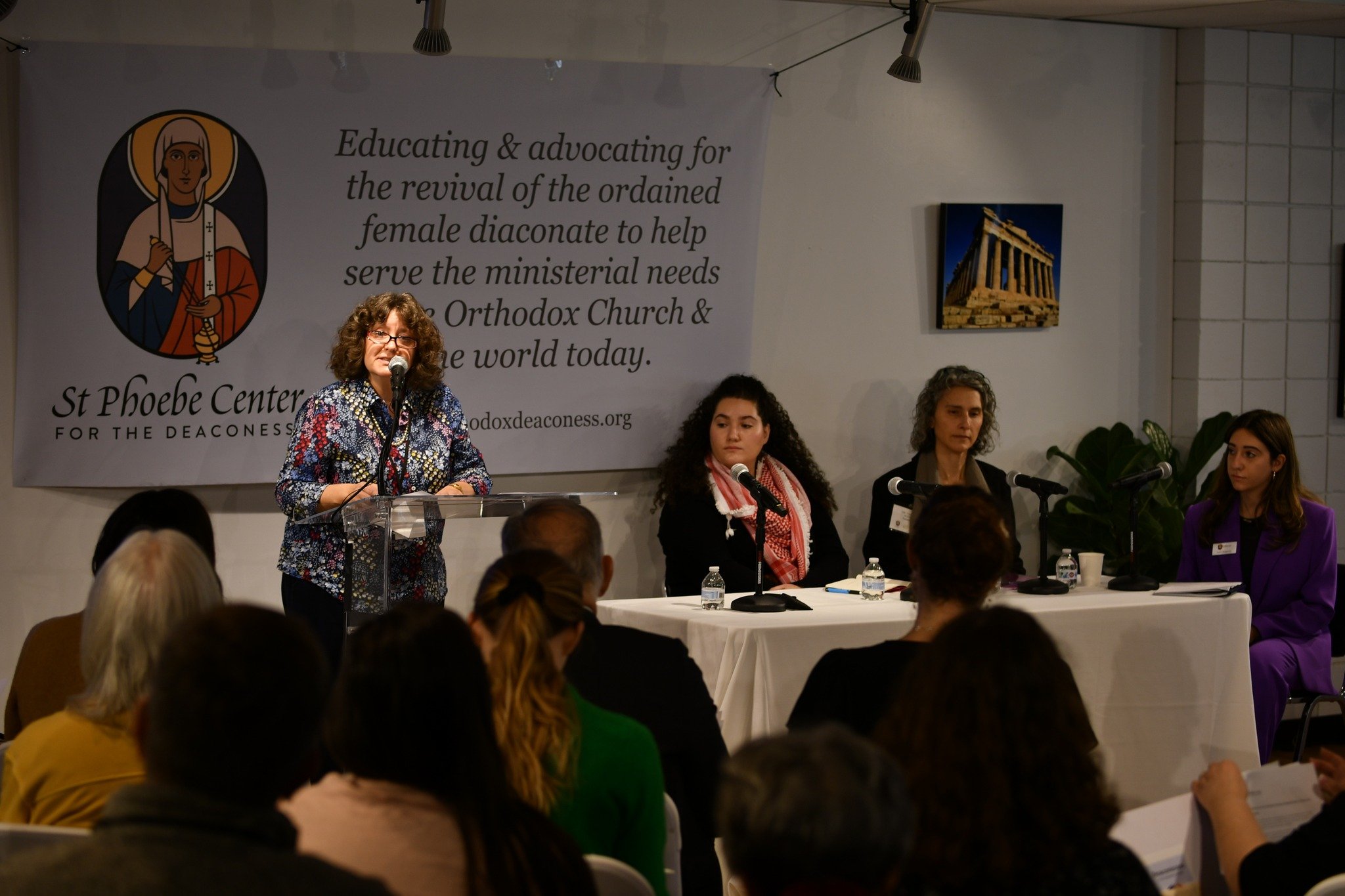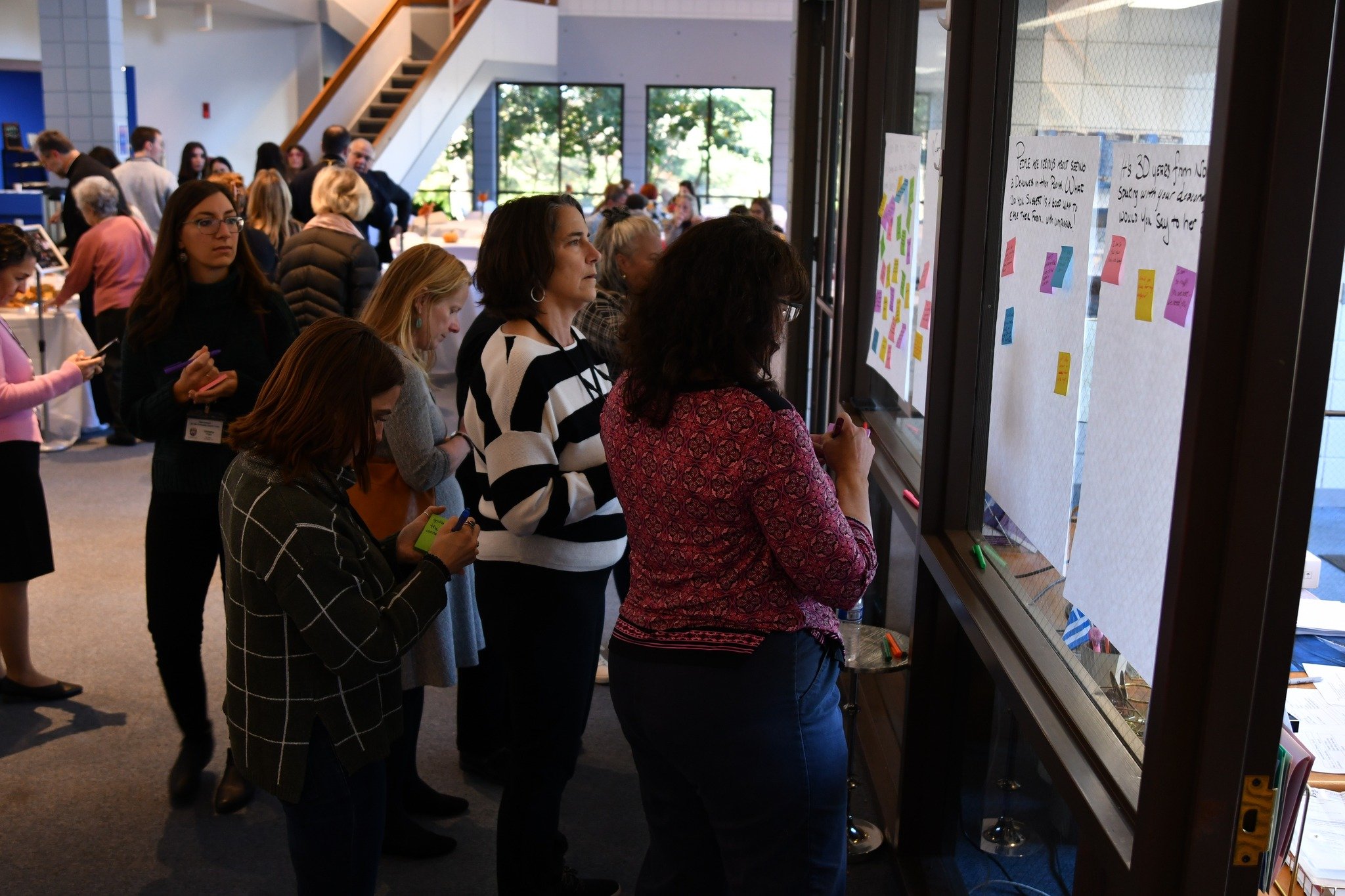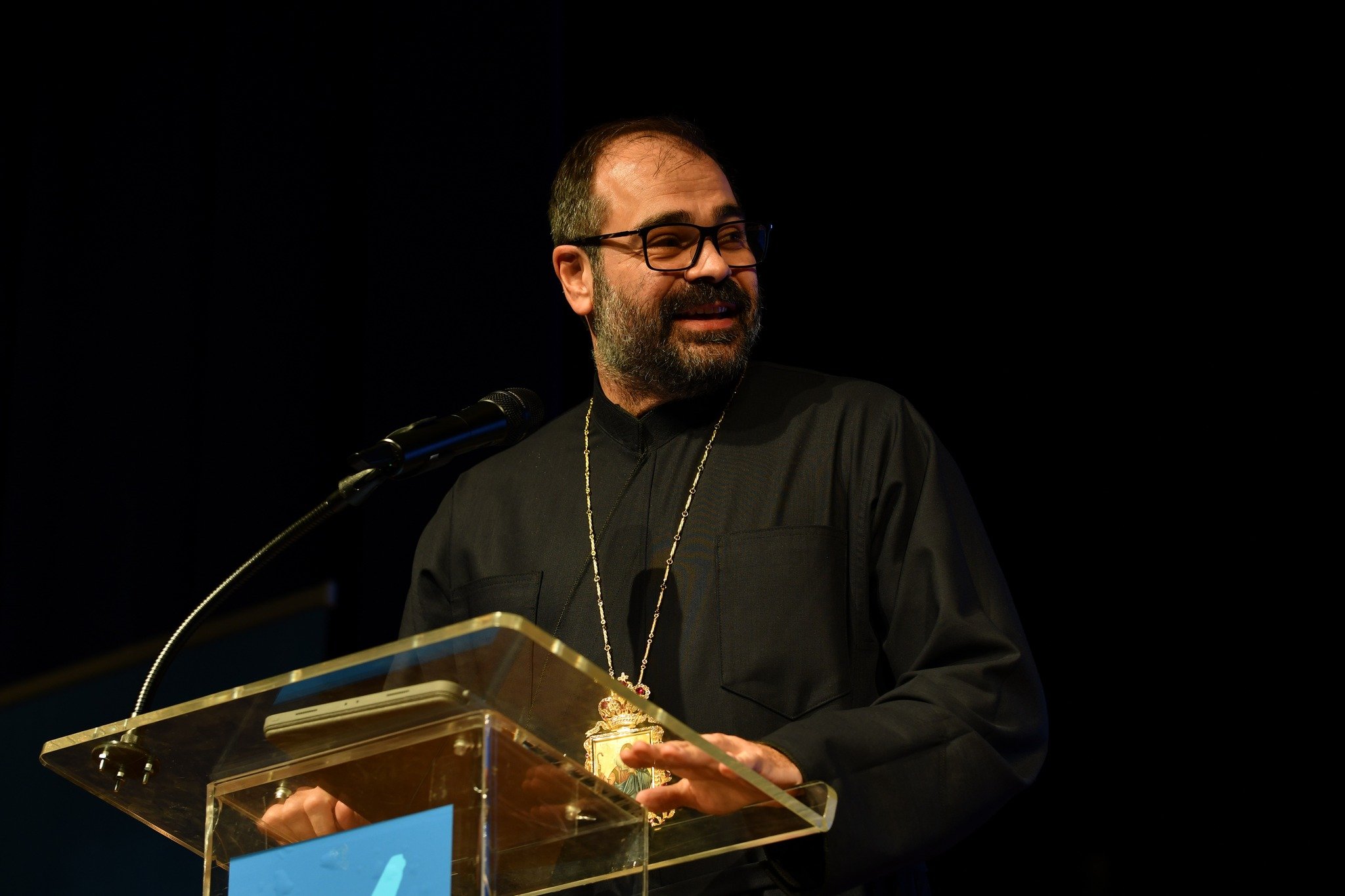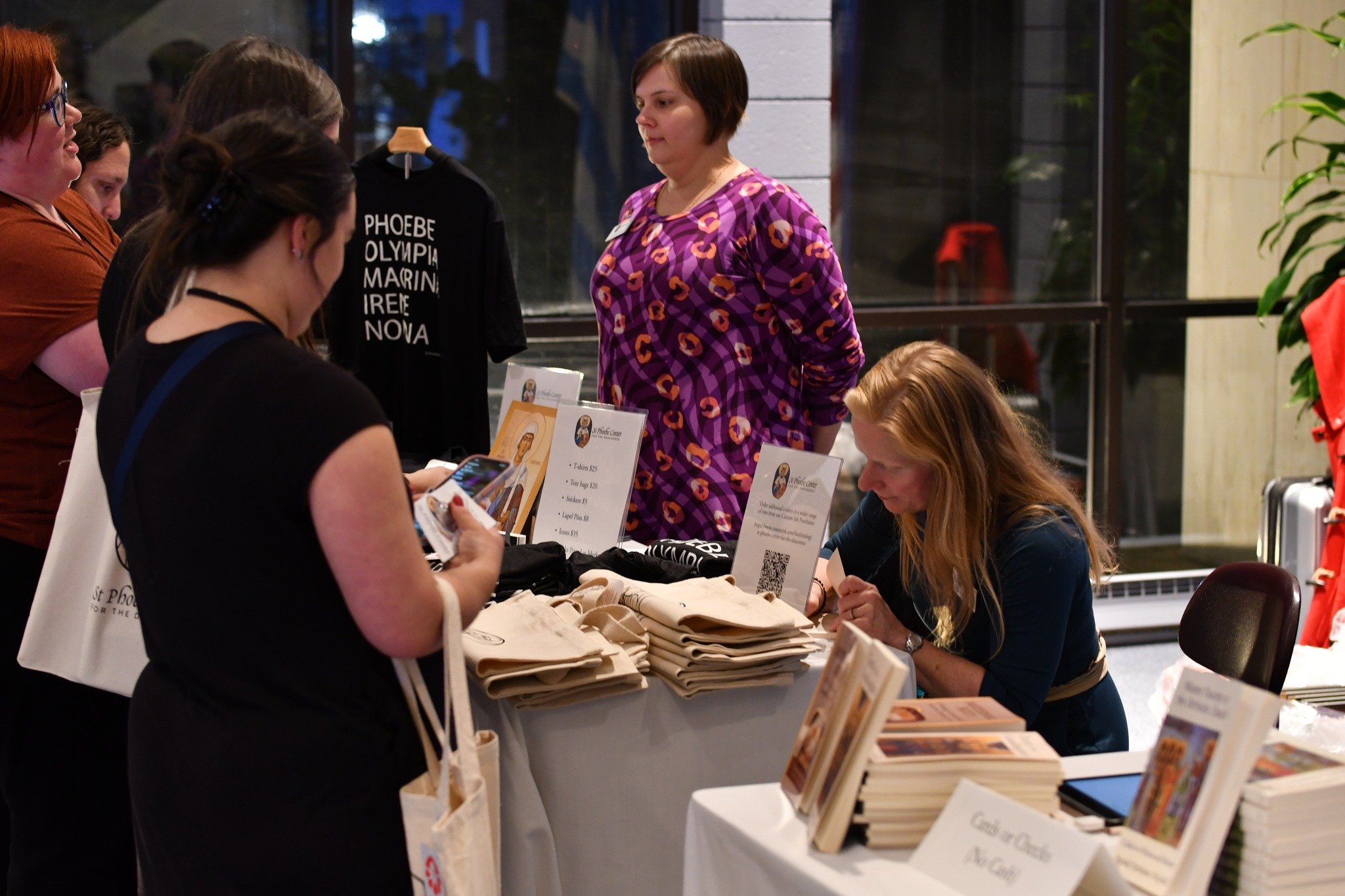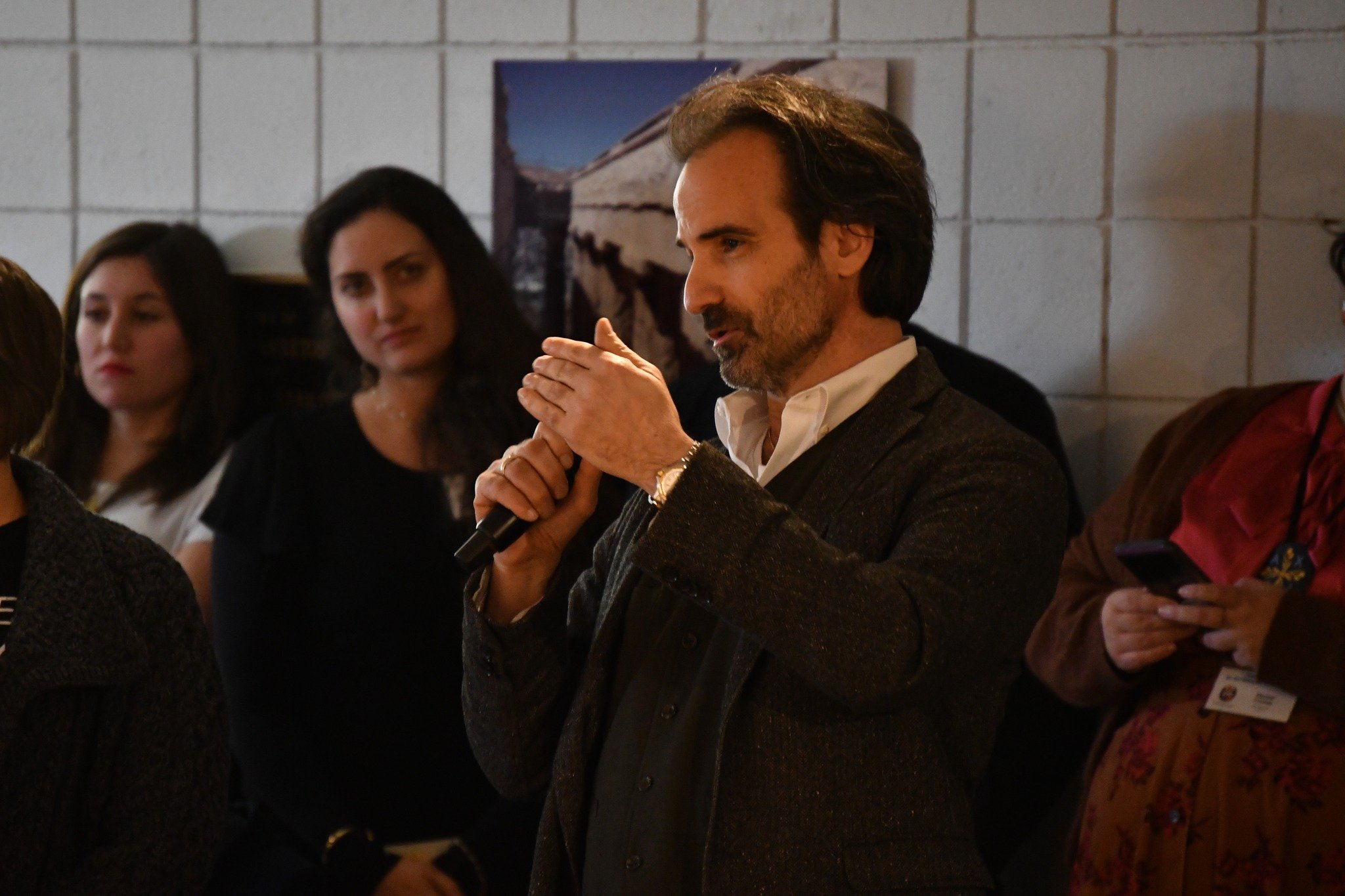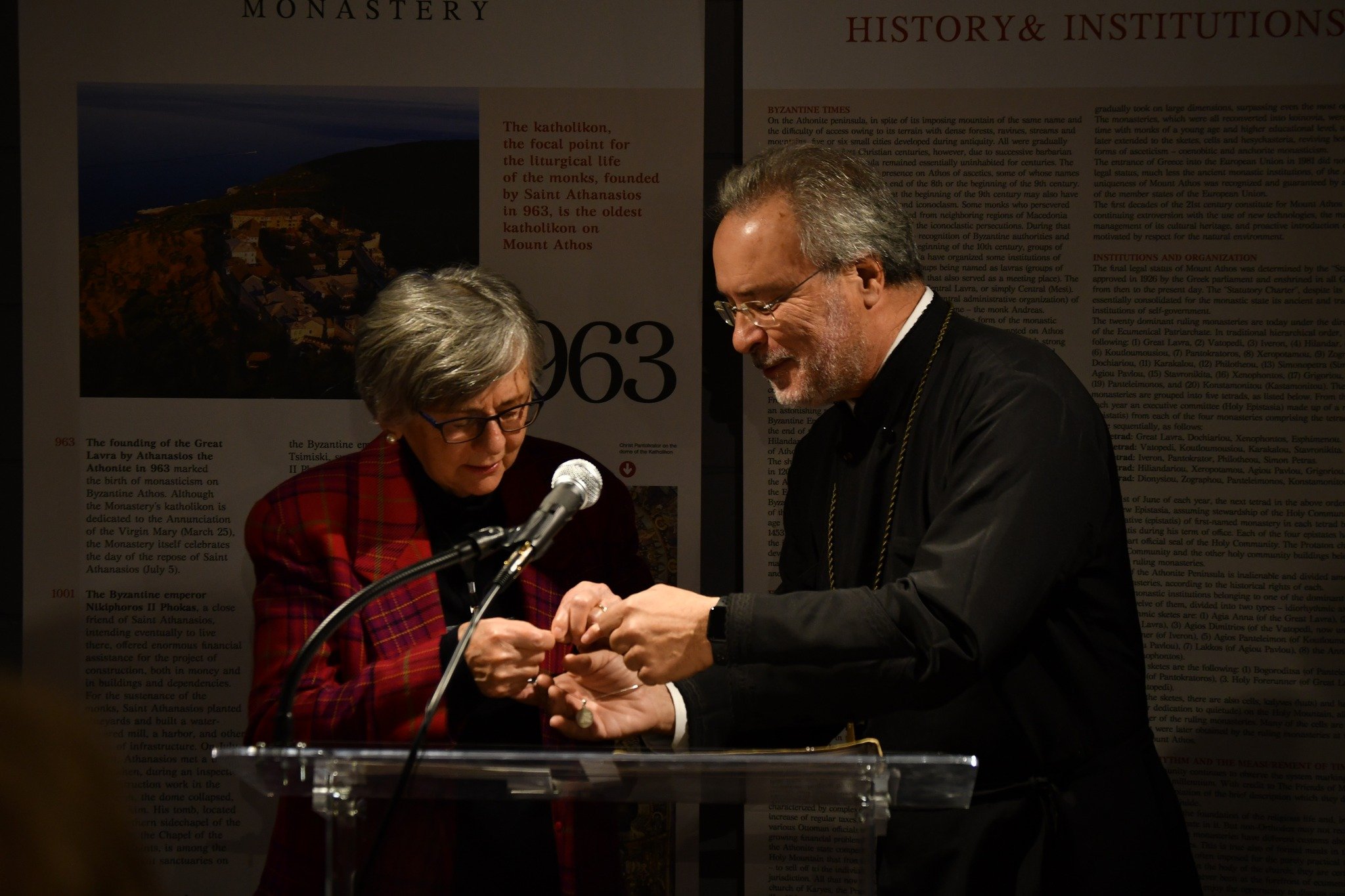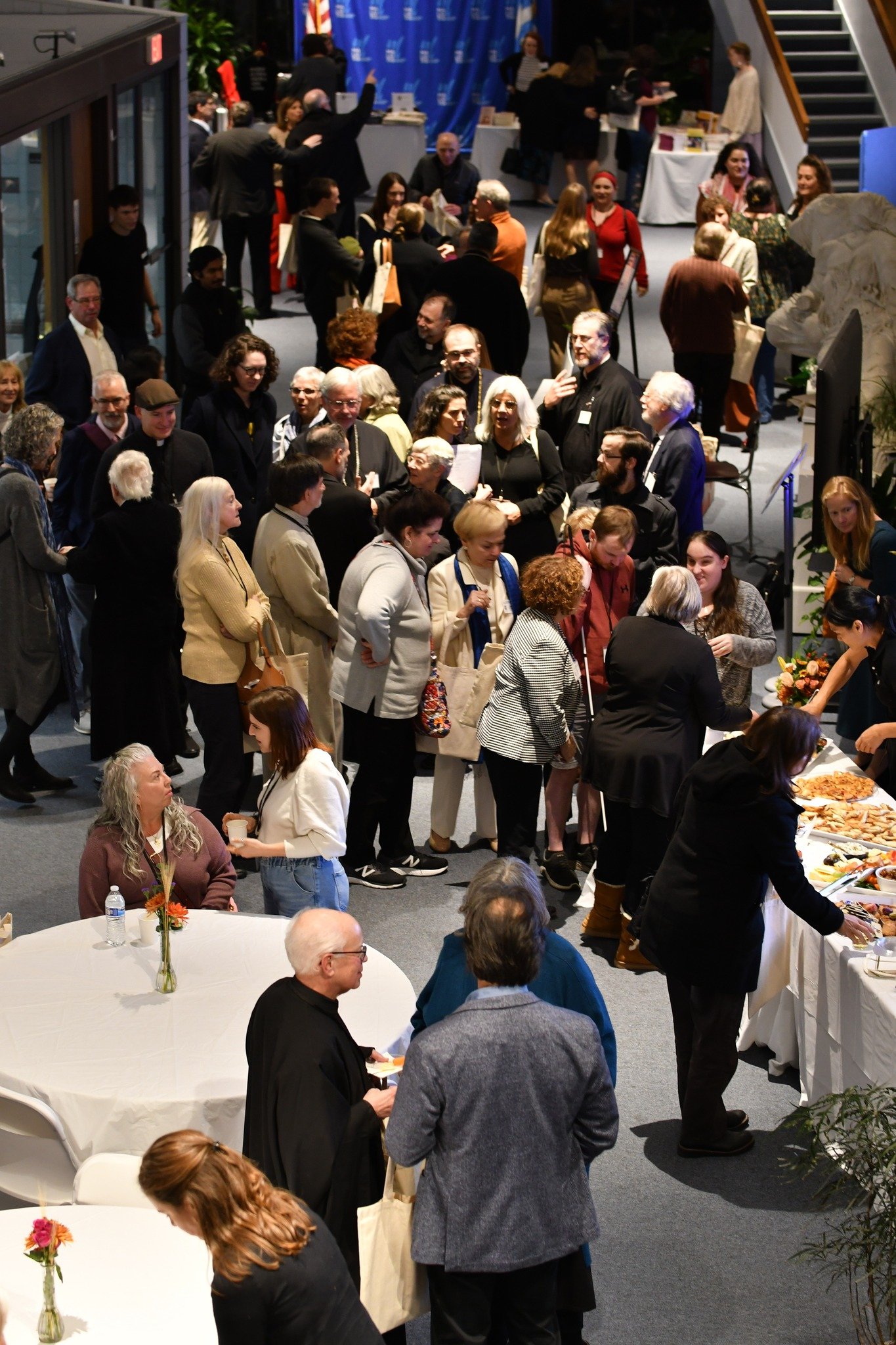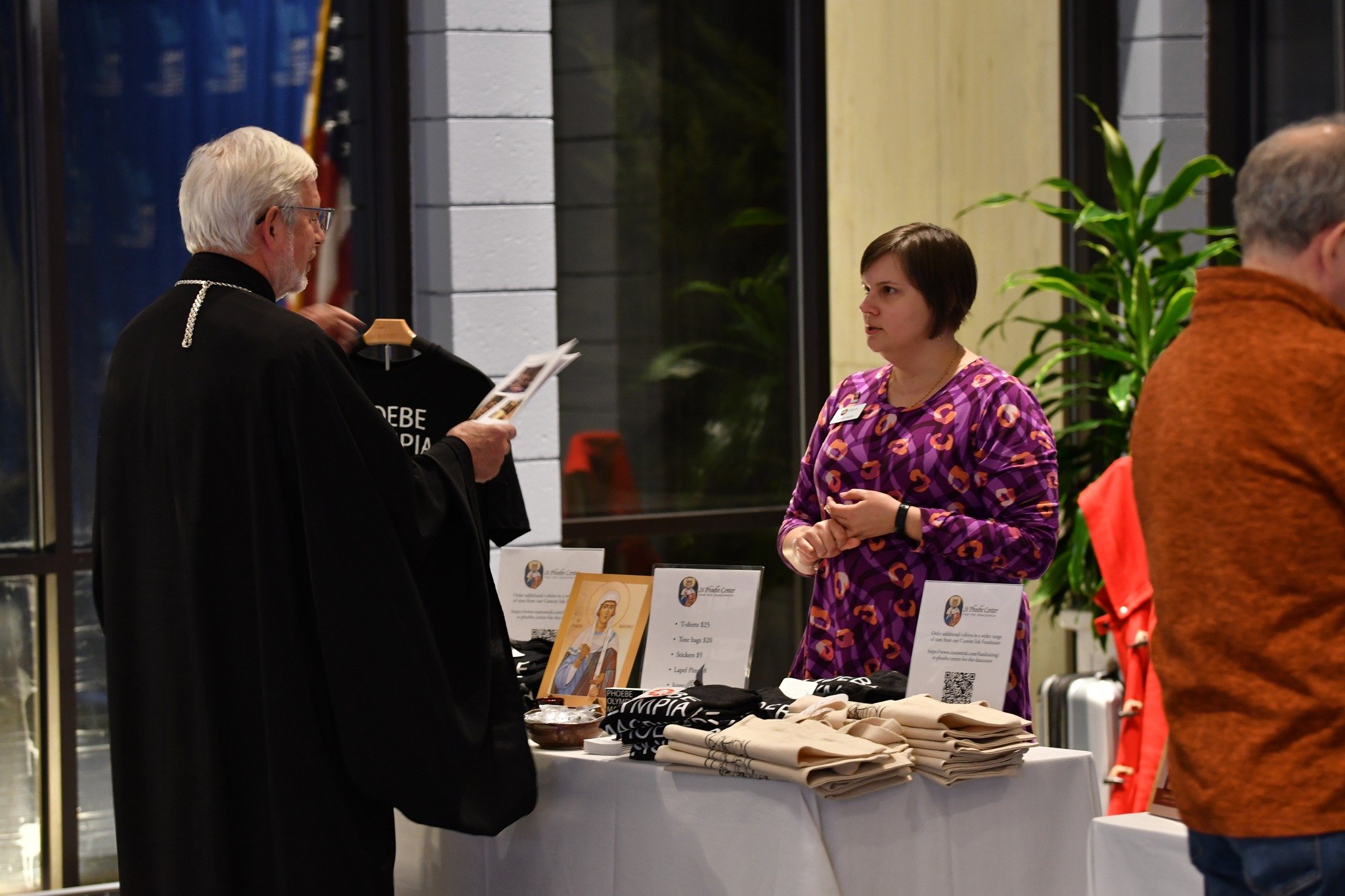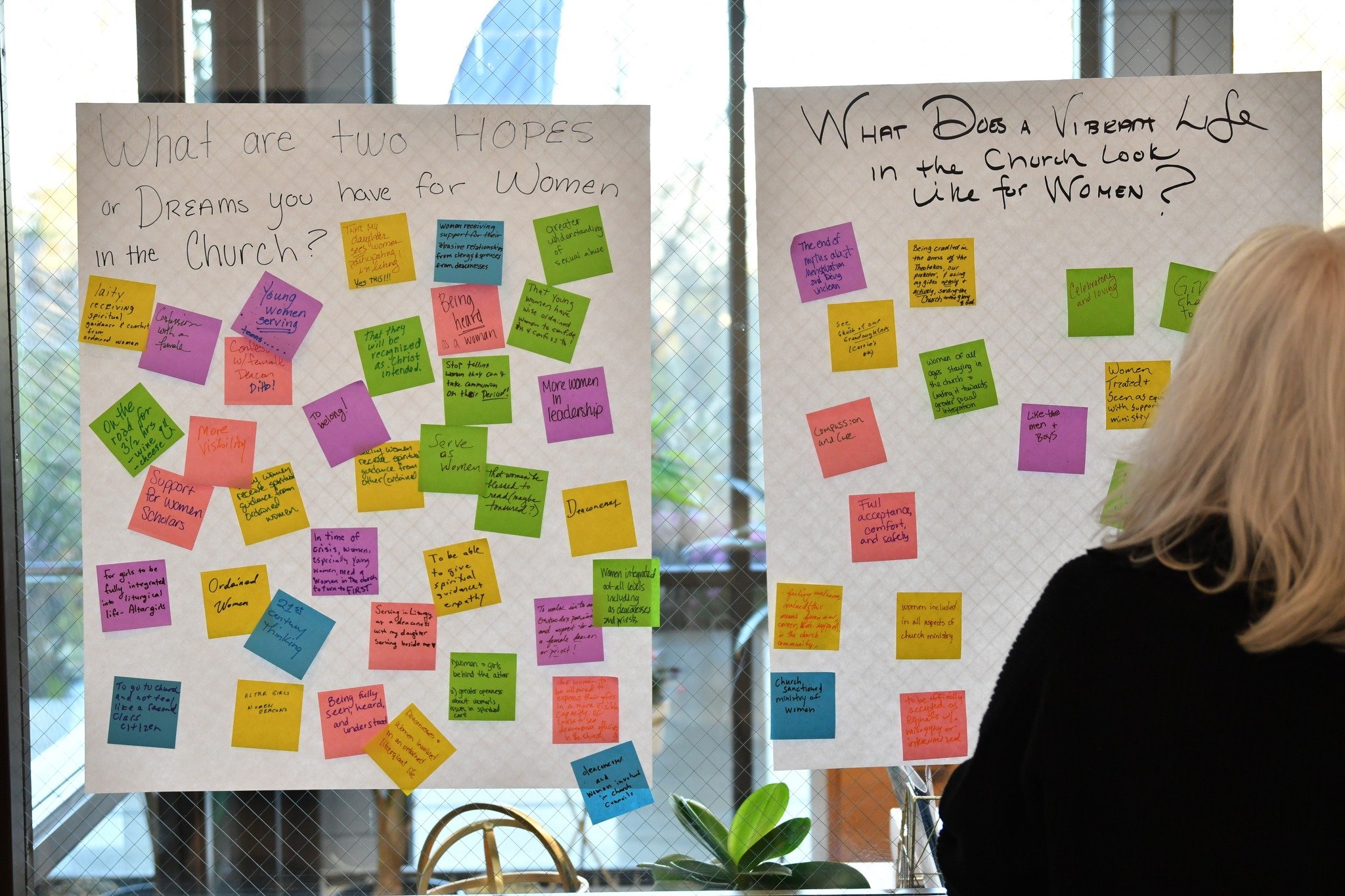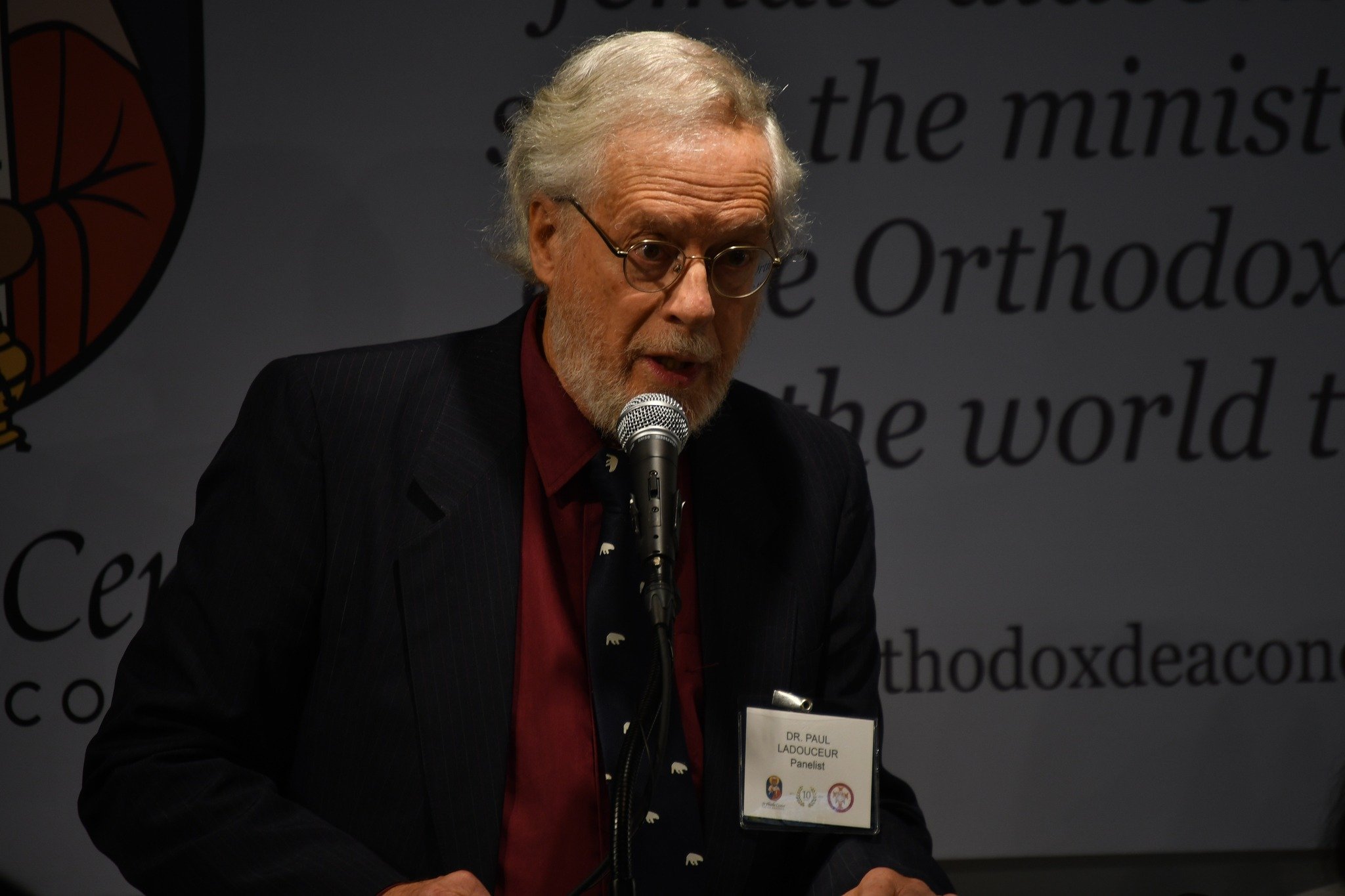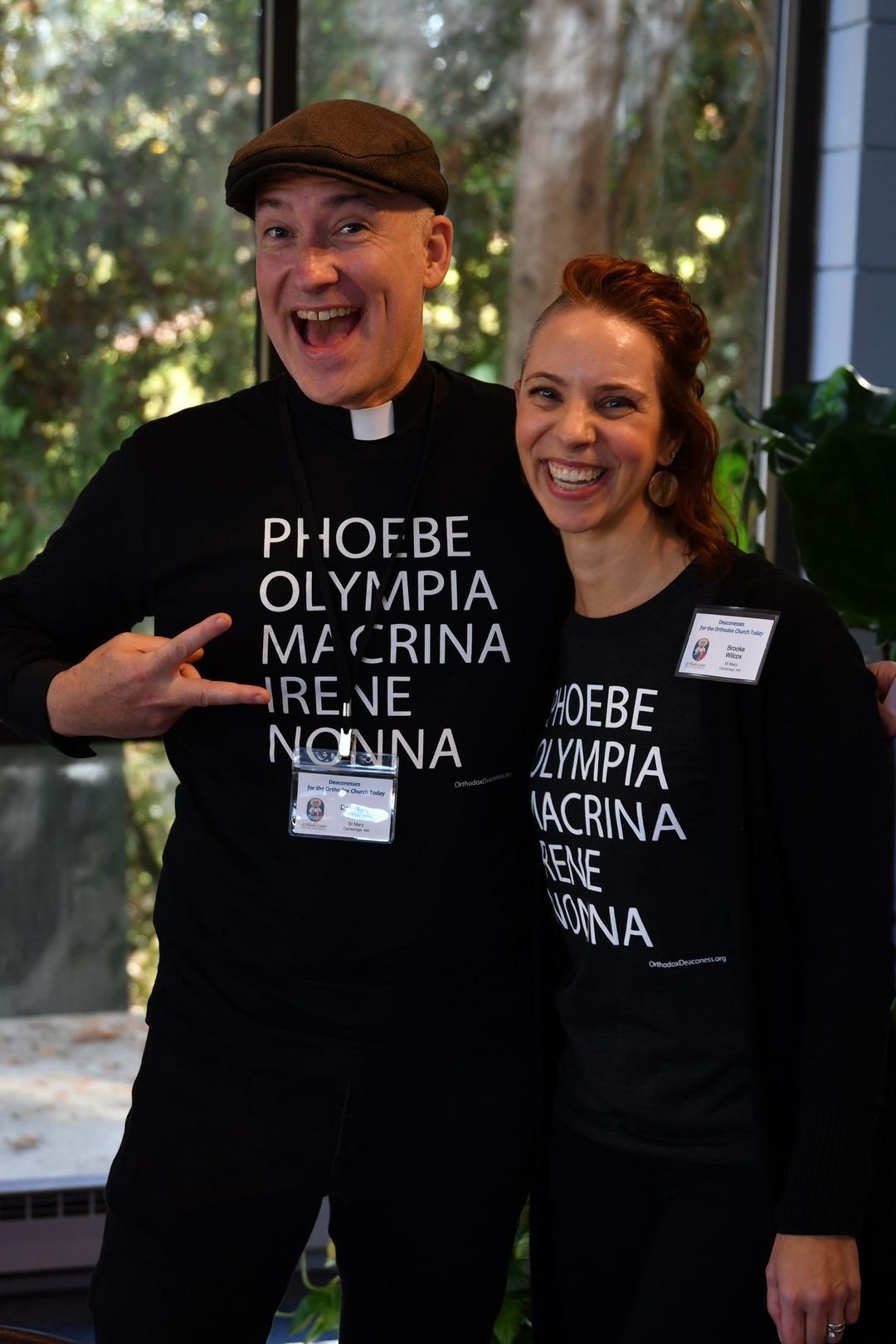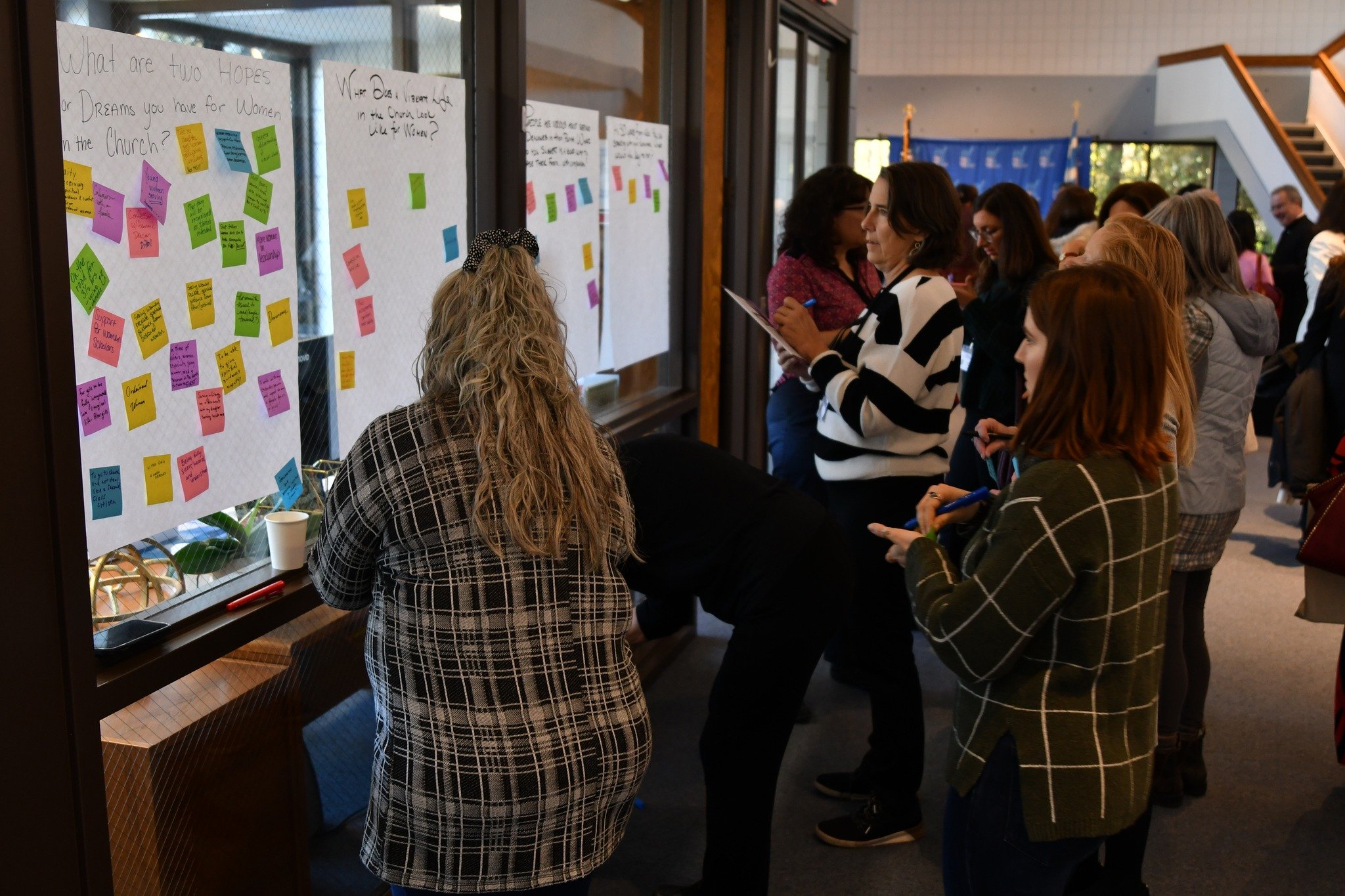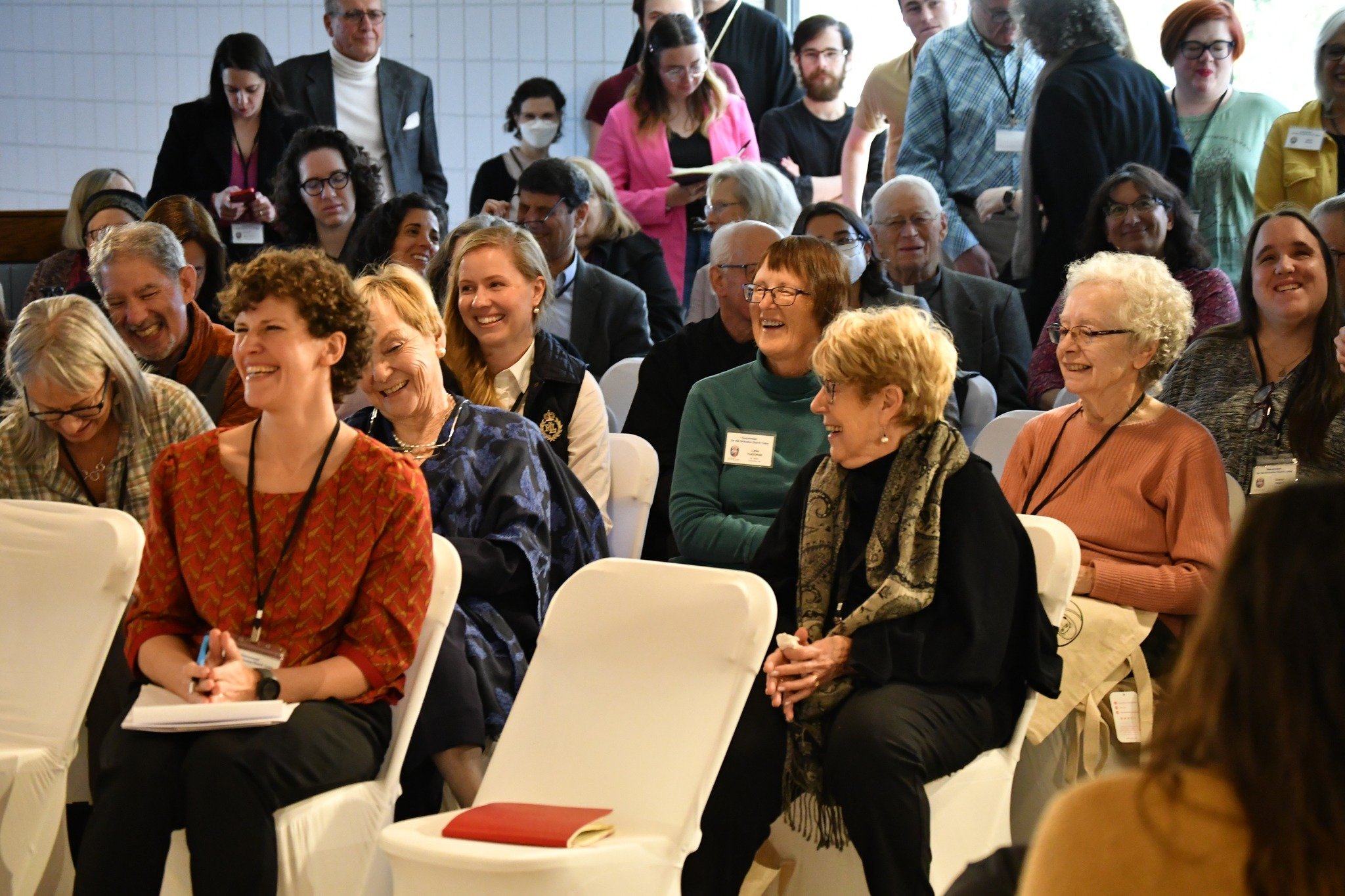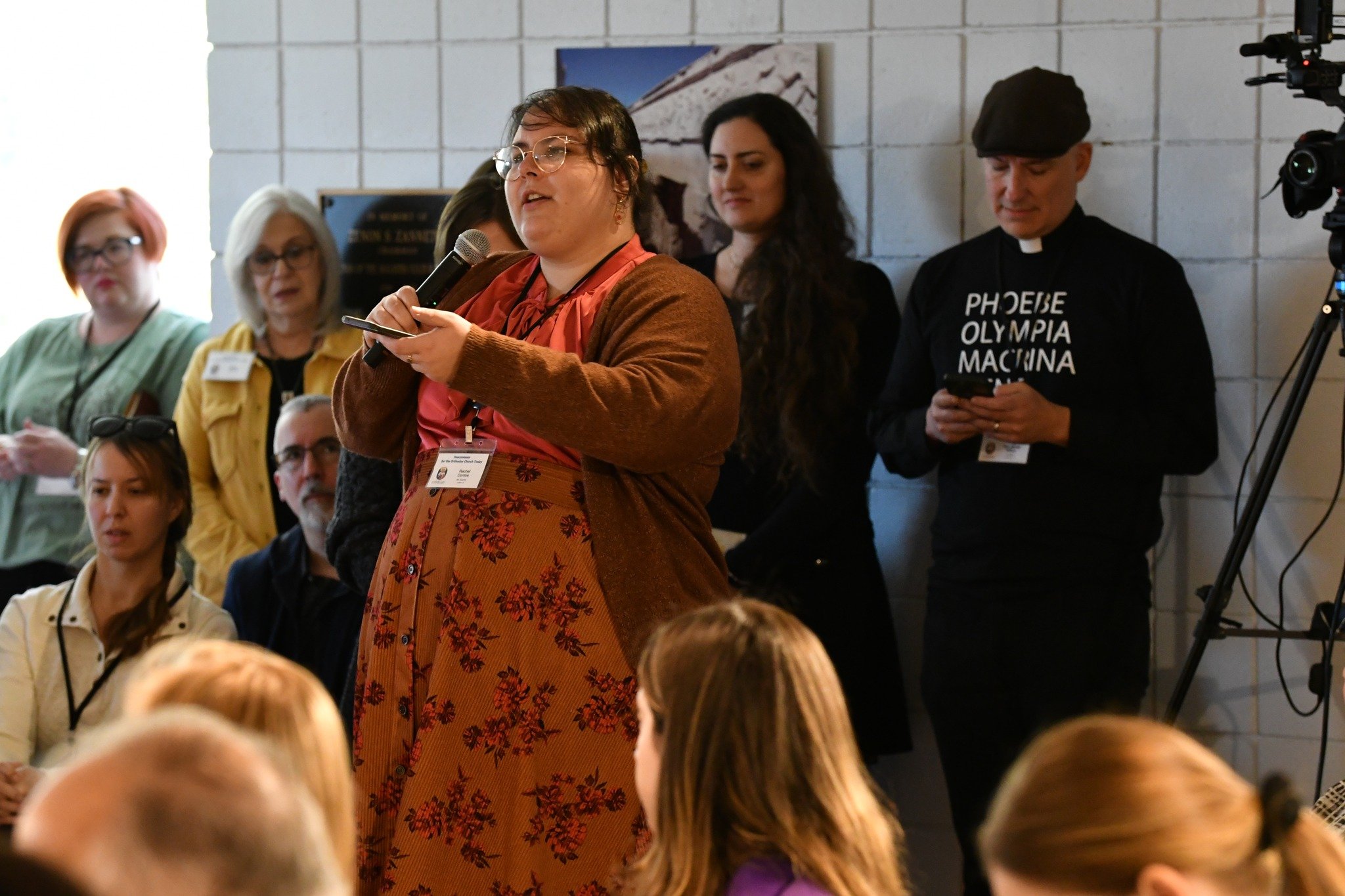“Deaconesses for the Orthodox Church Today”: Some Observations
Denise and Fr. John Jillions
Photos by Sarah Riccardi-Swartz
We were two of the one hundred or so participants at last weekend’s symposium on “Deaconesses for the Orthodox Church Today,” held at Holy Cross Greek Orthodox School of Theology in Boston (Nov 10-12, 2023). The conference was celebrating the tenth anniversary of the St Phoebe Center for the Deaconess. By rough observation, it looked like about three-quarters of attendees were women, but there were men, including a few priests and deacons, and notably a bishop—Metropolitan Nathanael of Chicago (GOA)—and they came from various Orthodox jurisdictions in Canada and the United States. The conference had the blessing of Patriarch Bartholomew of Constantinople and Archbishop Elpidophoros (GOA), both of whom sent substantial greetings of support for this effort.
Patriarch Bartholomew noted that important conferences on this topic have been going on for decades and that “the tradition of Deaconesses has never been entirely absent from the fabric of the Orthodox Church.” He acknowledged that its restoration will need to draw inspiration from the traditional Byzantine office while also considering how contemporary needs will shape the deaconess’ “life of service” today. Importantly, he said that this will be a “complex undertaking,” and as such must not be left entirely to the hierarchs. It necessitates a “comprehensive and harmonized strategy that engages both top-down and grassroots efforts, with the aim of utilizing the God-given talents of the entire Body of Christ.” Throughout the two-day conference that phrase from the Patriarch came up repeatedly: “top-down and grassroots.”
From the start, it was clear that this was to be more than your usual academic conference. The papers were of high quality and gave the symposium a solid foundation in rigorous but accessible historical, liturgical, and canonical scholarship. However the explicit aim of the conference was to go beyond discussions and advocate actively for a practical plan to restore the female diaconate. So the centerpiece of the weekend was the unveiling of “Proposed Guidelines for the Revival of the Ordained Female Diaconate in the Orthodox Church Today.” As such it was a limited aim—to move from “call” to “action,” from discussion to strategy, and provide a starting point for engagement with this issue at all levels of church life.
Restoring the female diaconate to the Orthodox Church is a controversial subject, in spite of the fact that for a thousand years, women were ordained as deacons at the altar and carried out a wide range of Christian services for both women and men. And for over a hundred years there have been calls for its restoration. There isn’t space here to give a blow-by-blow description of the conference program so we will concentrate on our key impressions and observations. The action plan outlined in the “Proposed Guidelines” largely assumes that readers are familiar with the female diaconate’s historical foundation and the long record of conferences in the modern era that have studied and advocated for its restoration. For a summary, we suggest reviewing these three documents on the St Phoebe Center website.
A related document is especially useful for debunking myths about the history and proposed restoration of women deacons in the Orthodox Church.
One of the objections that’s often heard to restoring women deacons is that the need has evaporated. Yes, perhaps in the first millennium women deacons were needed to help with baptizing women, but that is no longer required. The order of deaconesses thus—so the argument goes—died out naturally, as did other ancient practices that fell into disuse. But this is an error both about history and about the pastoral needs of women in the present. Historically, women deacons had a wide variety of social, teaching, and liturgical duties, and they counseled men as well as women. And today, there is a long list of woman-to-woman pastoral needs that might be better served by women rather than men.
Women face unique challenges and have particular needs, and woman-to-woman counseling is beneficial and crucial in areas concerning marital relations, motherhood, miscarriages, sexual abuse, caregiving, abortion, and other issues. There are also instances when it can be awkward, traumatic, and even inappropriate for a woman to receive counseling from a priest due to gender. (“Deaconesses in the Orthodox Church,” brochure, St Phoebe Center for the Deaconess.)
This should be obvious in 2023. And it’s not just about lack of information. There are pockets of dismissive and denigrating attitudes toward women at all levels of American society, but this is especially abhorrent when it finds a home among Orthodox clergy in private conversations and online chat rooms. “Take no part in the unfruitful works of darkness; rather, expose them. For it is shameful even to mention what such people do secretly...” (Eph 5:11-12). If anything, the St Phoebe Center may be underestimating just how virulent the opposition might be. As Archdeacon John Chryssavgis said in his remarks, “The keyboard warriors will be busy at work.”
Our sense is that these “warriors” are in the minority and that a much bigger (and quieter) group of Orthodox faithful will welcome greater inclusion of girls and women in the ministries of the Church, including the diaconate.
There is a need for much more data from surveys and interviews, to explore more than anecdotally the attitudes of Orthodox women and men (especially clergy) about women’s pastoral needs, woman-to-woman ministry, and restoration of the female diaconate. We can also learn from the experience of the Church in Africa, where the Patriarchate of Alexandria has consecrated women for ministry.
It was particularly striking to see Metropolitan Nathanael present for the entire conference and speaking as one of the panelists. As the only bishop, he was naturally the focus of some of the sharper questioning about why more hasn’t been done by bishops to address these questions. But he listened carefully and engaged with good humor and humility. This was a key part of the symposium’s success. Met Nathanael had been asked to respond to the proposed guidelines, and his comments were detailed and incisive, but also cautionary, especially with regard to how soon this could happen. Here are some of his comments on the guidelines.
Highlight woman-to-woman ministry
Say more about what women already do in the Church, because that is already “sanctioned”
More needs to be said about women being more visible in leadership roles
Mentoring, accountability, and evaluation are important to include, but he noted that these are glaringly absent from the church—“This just does not exist”—and need to be brought to all levels of clergy and church life
Most people are not aware of the female diaconate and its history. Much more education is needed
Clarify the need for specifically ordained ministry
More needs to be said about the spouse of the deaconess and any canonical impediments
Much more attention is needed on who is going to take this forward, not just how
More changes are needed first in the seminaries, and in the “parish landscape” before women can be ordained to the diaconate. In the seminaries, for example, he asked: “What about weeding out student misogyny?”
Other respondents mentioned that the focus on female diaconate raises the need to revitalize the role of deacons in general. Pressed on what Metropolitan Nathanael intends to do when he gets back to Chicago, he said he would obviously need to give serious consideration to the next steps, but his initial thought was to gather his clergy and have some of the folks from the St Phoebe Center make a presentation and initiate a discussion. But he won’t be acting precipitously. Of course, as Metropolitan Nathanael said, “There is a process and order to be followed.”
Indeed, that is true for us all. There is a process and order within our spheres of activity and influence. There are many ways to prepare the soil for responsible consideration of this question in the church today. The St Phoebe Center took an important step by convening this conference and calling for action. It’s now up to Orthodox Christians of good will to respectfully consider their proposal.
Denise Jillions has degrees from Barnard College and Columbia University and has worked in education, counseling, development, and migrant services. She directed the Department of Lay Ministries and served on the Preconciliar Commission for the Orthodox Church in America. She has supported music, education, and pastoral ministries in parishes in Australia, Canada, the US, and the UK, and closely collaborated with her husband in the founding of the Institute for Orthodox Christian Studies in Cambridge, England.
The Very Rev. Dr. John A. Jillions is the former chancellor of the Orthodox Church in America and the founding principal of the Institute for Orthodox Christian Studies in Cambridge, England. He was an associate professor of theology at the Sheptytsky Institute of Eastern Christian Studies at Saint Paul University, Ottawa, and has taught at St. Vladimir’s Seminary and Fordham University. He holds degrees from McGill University, St Vladimir’s Seminar), and Aristotle University of Thessaloniki. He has served parishes in Australia, Greece, England, Canada, and the United States. He is vice president of the Orthodox Theological Society in America and the author of Divine Guidance: Lessons for Today from the World of Early Christianity (2020).



